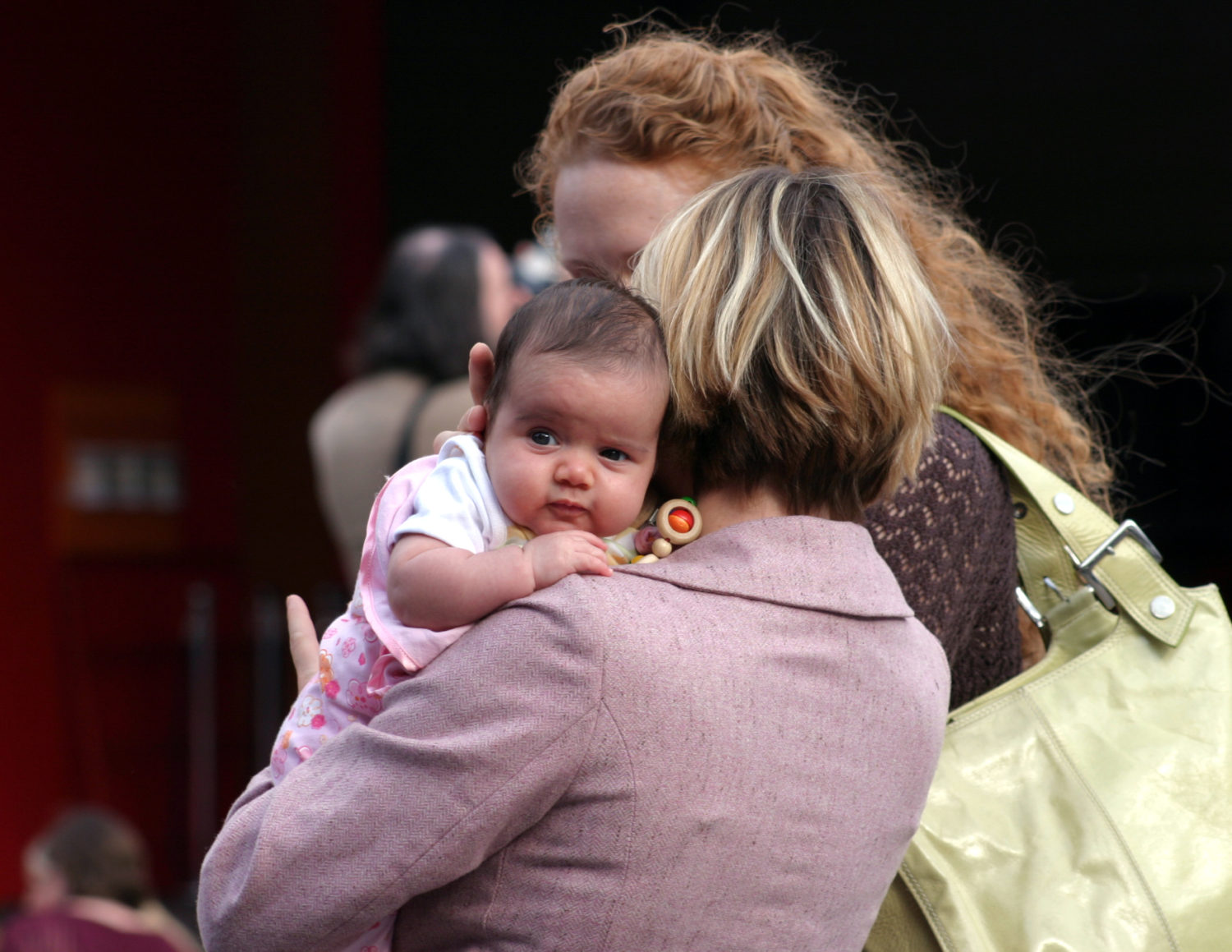Mum’s the word
SARAH CROOK: The decision to ban babies from parliament is symbolic of a wider failure to support parents
It is rare for sleeping three-month-old babies to make political headlines. But when in 2021 Labour MP Stella Creasy was reprimanded for bringing her baby into Westminster Hall, the apparent irreconcilability of professional political obligations and the necessary work of mothering were brought into sharp relief.
Despite an outcry, parliament’s procedure committee was unmoved, issuing a report this summer that upheld the ban on babies being present during parliamentary debates. On a broad level, the rebuke symbolises how the labour of parenting is obscured in public life. Mothers are ostensibly welcome in the workforce, but the work of mothering must remain invisible. On a narrower level, the reprimand represents the ways that successive governments have failed parents both inside and outside of parliament.
Mothering has long held a fraught place in the political imagination: are mothers an untapped force of reserve labour, or are national interests best served by their unpaid childcare work? Are there skills, experiences and perspectives that can be drawn from mothering without essentialising womanhood?
Does it matter, then, that – as academics Rosie Campbell and Sarah Childs have shown – mothers of young children are underrepresented in the UK parliament?
Certainly, women have sometimes used their experience as mothers as evidence of their suitability for public office. In the 1970s and 1980s, the media emphasised Margaret Thatcher’s status as a mother to affirm her qualifications as a leader. More recently, Andrea Leadsom drew ire in 2016 when she suggested motherhood gave her an advantage over Theresa May, her childfree rival for the prime ministership (a claim on which she subsequently rowed back). And in this year’s Conservative leader-ship debates, Kemi Badenoch used her closing remarks to highlight that she has ‘three children, and I want the very best future for them’. Such claims imply that mothers have a diffuse but superior investment in the future.
Meanwhile other parliamentarian mothers are castigated for bringing their small children into their workplace. Academic Fiona MacKay has argued that the invisibility of care work constructs the ideal political agent as ‘unencumbered’. The visibility, then, of a baby in the Commons undermines the mirage of the unencumbered parliamentarian. The message is clear: mothers are welcome, but mothering is not.
It has most often been female parliamentarians who have had to navigate the tension between being seen as both devoted to their families and committed to their constituents. Parliamentarian fathers, though, have also entered the fray. Tony Blair’s paternity leave in 2000 was a subject of national discussion: ‘Take it Off, Tony’, urged The Mirror, ‘Go on, Tony, take paternity leave’, encouraged the New Statesman, while The Guardian called it ‘The big question’.
Ten years later David Cameron took paternity leave following the birth of his daughter Florence. Boris Johnson did not take paternity leave following the birth of Wilfred in 2021, citing his workload. Such decisions are important; just as the presence of a baby in the Chamber is evidence of the necessary labour of parenting, the decision to pause paid work is an acknowledgement of care work’s value.
And it is a man who has provided the most recent striking image of combining nurturing and law making. A video of Trevor Mallard, the Speaker in New Zealand, soothing and feeding an MP’s baby went viral in 2019.
It seems the response to Creasy was not inevitable or unavoidable: it is possible to care for babies and do the business of parliament. Neither was Creasy’s baby the first to attend a debate. In 2018 Jo Swinson’s baby accompanied her to a debate on proxy voting. The presence of Swinson’s baby was itself a product of an egregious failure to meet the needs of parliamentarian parents, though.
In July 2018, the then Conservative party chairman Brandon Lewis revealed the frailty of procedures that rest on trust when he broke a pairing agreement – designed to mitigate an MP’s necessary absence from voting – while Swinson was on maternity leave. Although progress on proxy voting was subsequently made, other needs endure: backbench MPs still need a system of maternity cover. The very presence of babies in the Chamber is a product of the failure to address the needs of parliamentarian parents. The recent disavowal of mothering in the Chamber is therefore a double failure.
But failures extend beyond the walls of Westminster. The UK’s parental and maternity leave policies lag behind other European countries. Summarising a major international review of leave policies in 2021, academics Peter Moss and Alison Koslowski concluded that the UK’s leave policy is “implicitly matriarchal, eschewing gender equality for the idea that women should be the main carers of young children”.
After leave, working parents face years of painful childcare costs. The government has recently unimaginatively indicated that costs could be addressed by changing the ratio of adults to toddlers in nurseries. Such a suggestion will do little to help nurseries that are struggling to stay afloat.
Parliamentary pass holders share in the struggle to hold on to childcare: a parliament nursery finally opened in 2010 and has survived calls for its closure in the years since. That it was on the site of the old Bellamy’s Bar has pleasing symbolism. Change is possible.
But the childcare crisis is far from new to the political agenda. During the second world war, a concerned peer urged the Lords to consider the provision of childcare “not from the standpoint mainly of child welfare but as an economic problem, as a problem related to the better utilisation of our woman-power.”
Mothers of children under five were crucial to the war effort but could not work without childcare. One Lord pointed out that: “You may have factories with the best equipment in the world and mothers willing to go and work in them, but unless the accommodation for their children is there … you may just as well have no factory at all.”
Wartime nurseries were established to cater to this need. These nurseries closed in the wake of the war, philosopher Denise Riley argued, not as part of an ideologically driven effort to push mothers out of the labour market but due to strained resources and muddled policy interests.
Given the insufficient provision of childcare in postwar Britain, it is little surprise that the topic formed a major area of concern for the Women’s Liberation Movement during feminism’s ‘second wave’. Indeed, the frustrations of new mothers was a critical seed for the movement.
The movement formulated the demand for free 24-hour nurseries in 1970. This demand was never met, although governments have, to varying degrees and with varying success, attempted to address parents’ needs. In 1998 Harriet Harman, then Secretary of State for Social Security and Minister for Women, set out an intention to “achieve a real alignment between what women want and what the government intend”. One of the central issues for this process of alignment was childcare – and affordable, accessible, and high-quality childcare was set out as a new priority. Harman believed that “the best thing that we can do is to support parents, by offering them choice backed up with opportunities, and opportunities backed up with real investment.” That parents continue to struggle shows how easily such priorities are shaken off.
Without adequate support for parents of small children – both through well-supported leave and through affordable, accessible, and high-quality childcare – this struggle will continue. And mothers will continue to bear the brunt.
Mothers do not have a deeper commitment to the future than others. They do, however, need better policies to have better futures. Until then, the labour of mothering is obscured by platitudes. This government has proven itself unable to meet the needs of mothers of young babies who work in parliament, let alone beyond it. The next Labour government needs to seize the mantle laid down by Harriet Harman and invest in supporting parents – in parliament and outside – by implementing policies that value and facilitate both care work and paid work.
Image credit: jambo13, CC BY-NC-ND 2.0, via Flickr

